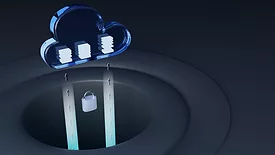Home » Keywords: » management
Items Tagged with 'management'
ARTICLES
Leadership & Management
Finding your volunteer leadership lane
As security leaders, there are a number of opportunities to lead within and outside of our own organizations.
March 15, 2023
Leadership & Management
Sailing the seven (or more) Cs of leadership
Building and maintaining an organizational culture takes values-based investment from the top down.
February 15, 2023
EVENTS
Webinar Sponsored Webinars
4/16/25 to 4/16/26
Contact: Amy Jackson
Modernizing GSOC Operations: Ensuring Full Control and Complete Situational Awareness
Sign-up to receive top management & result-driven techniques in the industry.
Join over 20,000+ industry leaders who receive our premium content.
SIGN UP TODAY!Copyright ©2026. All Rights Reserved BNP Media.
Design, CMS, Hosting & Web Development :: ePublishing
.webp?height=168&t=1724459676&width=275)


.webp?height=168&t=1696853424&width=275)





.webp?height=168&t=1675691546&width=275)


